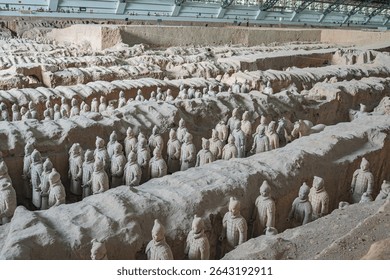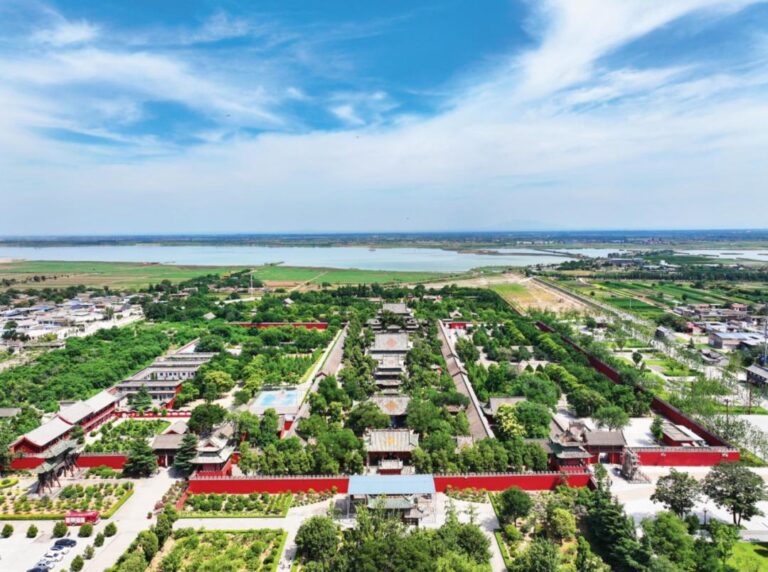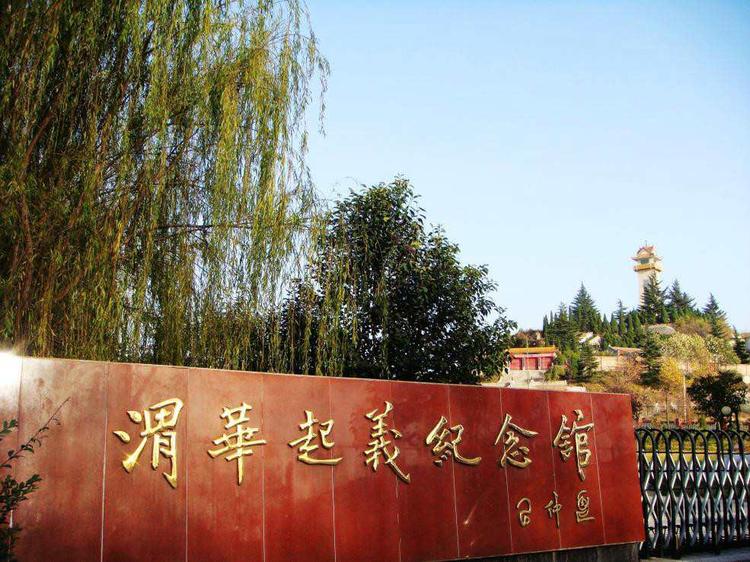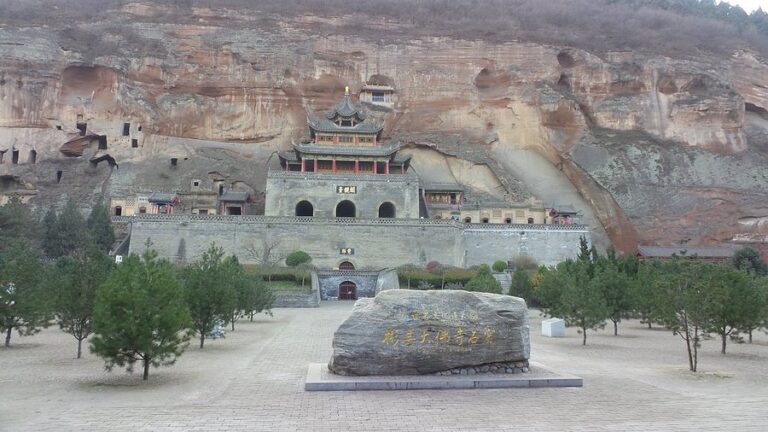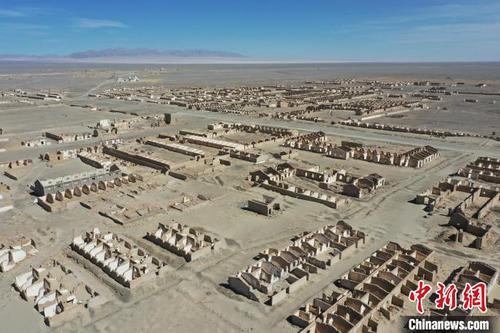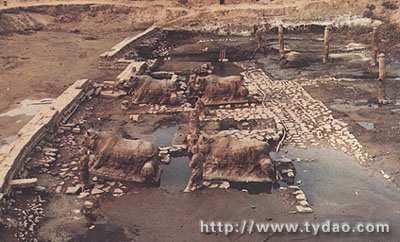Culinary Delights of Meizhou: An Insider’s Guide to Dabu Zhaoqingtang
An Essential Guide to Visiting Meizhou Dabu Zhaoqingtang
In This Guide
- An Essential Guide to Visiting Meizhou Dabu Zhaoqingtang
- The Rich History of Meizhou Dabu Zhaoqingtang
- Main Highlights: What to See at Meizhou Dabu Zhaoqingtang
- Planning Your Visit: A Practical Guide
- Tickets, Hours, and Booking
- How to Get There
- Local Cuisine and Accommodation
- Frequently Asked Questions
- Final Thoughts on Your Trip
Nestled in the heart of Guangdong Province, Meizhou is a city steeped in rich cultural heritage and breathtaking landscapes, often referred to as the “Hometown of the Hakka.” Among its many treasures lies Meizhou Dabu Zhaoqingtang (大埔肇庆堂), a remarkable site that stands as a testament to the architectural brilliance and historical significance of the Hakka people. This ancient structure, characterized by its unique blend of traditional Chinese and Western architectural styles, invites visitors to step back in time and immerse themselves in the stories of a bygone era.
The allure of Zhaoqingtang extends beyond its stunning façade; it embodies the essence of Hakka culture, showcasing the intricate craftsmanship and artistry that define this vibrant community. Visitors will find themselves enchanted by the surrounding landscapes, dotted with lush hills and serene waterways, creating a picturesque backdrop for exploration. Whether you are an avid history buff, a culture enthusiast, or simply in search of a tranquil escape, Dabu Zhaoqingtang offers a unique experience that is both enriching and visually captivating.
As you embark on your journey to this hidden gem, prepare to delve into an immersive experience filled with local traditions, delectable Hakka cuisine, and the warm hospitality of the Meizhou people. Join us as we uncover the wonders of Meizhou Dabu Zhaoqingtang and the vibrant culture that thrives within its walls, promising an unforgettable adventure for travelers of all kinds.
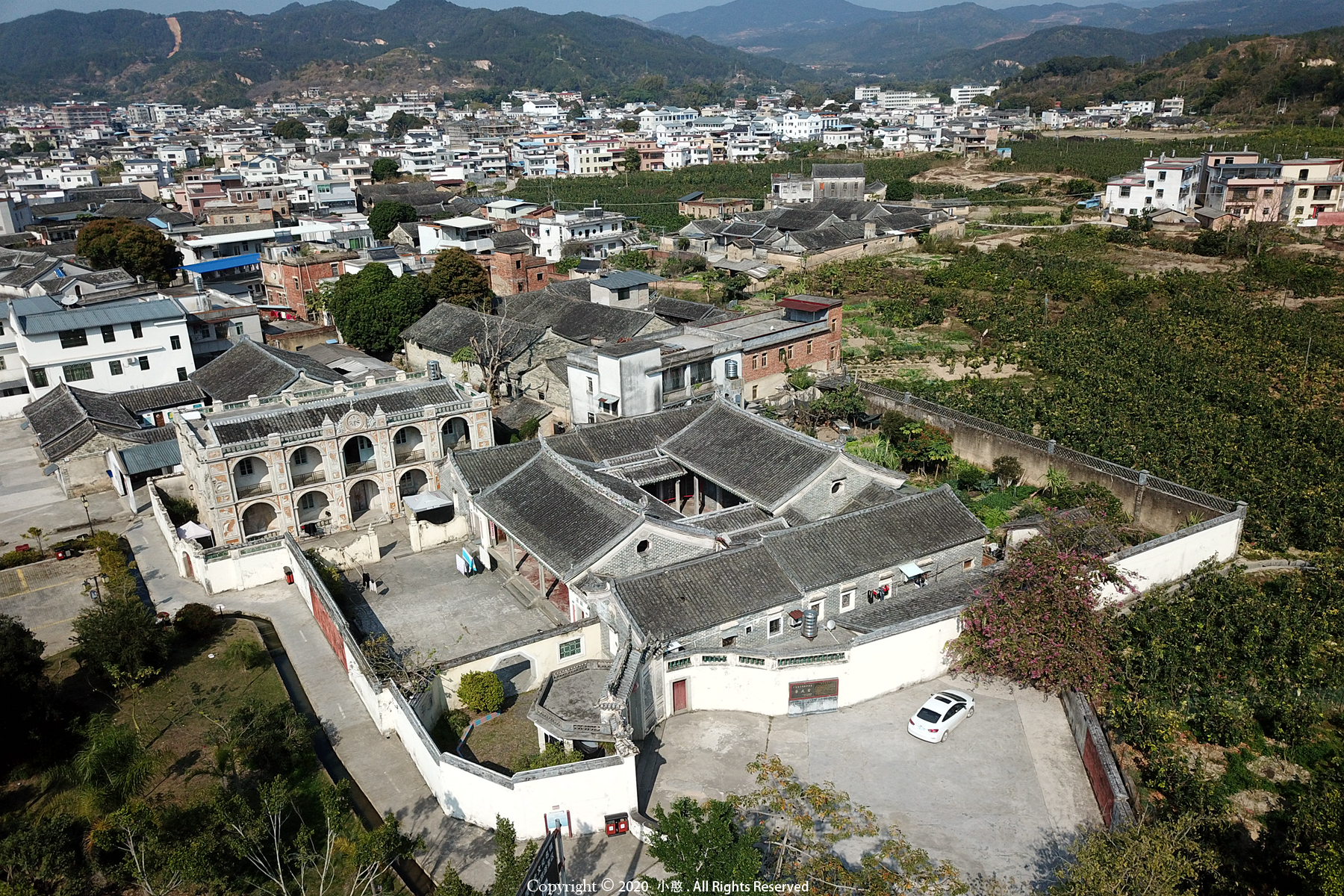
Meizhou Dabu Zhaoqingtang.
The Rich History of Meizhou Dabu Zhaoqingtang
The Meizhou Dabu Zhaoqingtang, or 大埔肇庆堂, is a remarkable historical site located in the heart of Dabu, a region celebrated for its rich Hakka culture and heritage. This exquisite structure represents a fusion of architectural elegance and cultural significance, embodying the essence of the Hakka way of life.
Dating back to the Ming and Qing dynasties, Zhaoqingtang serves as a testament to the enduring legacy of the Hakka people, who have inhabited this area for centuries. The building is characterized by its unique architectural style, which includes traditional features such as curved rooflines, intricate wood carvings, and decorative elements that reflect the region’s artistic heritage. It is a prime example of the “Walled House” design, which was historically significant for its defensive capabilities, allowing families to protect themselves during tumultuous periods.
The significance of Zhaoqingtang extends beyond its architectural beauty; it is also a cultural hub where local traditions and customs are preserved. The site has been a gathering place for Hakka communities, serving as a venue for important ceremonies, festivals, and communal activities that celebrate their heritage. The building has witnessed countless stories of resilience and unity among the Hakka people, making it a living narrative of their collective identity.
In recent years, Zhaoqingtang has gained recognition as a key tourist attraction, drawing visitors interested in exploring the depth of Hakka culture. Guided tours provide insights into the historical context of the structure, as well as the broader significance of the Hakka people in the region’s development. The surrounding area, which features numerous historical homes and cultural sites, enhances the experience, allowing visitors to immerse themselves in the vibrant history of Dabu.
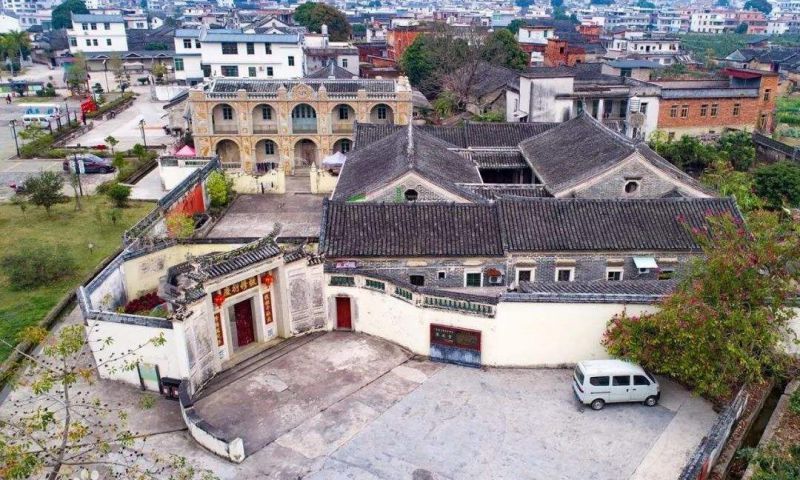
Meizhou Dabu Zhaoqingtang.
Today, this remarkable site stands not only as a symbol of architectural beauty but also as a crucial part of the ongoing story of the Hakka people. It invites guests to explore and appreciate the intricate tapestry of history, tradition, and community that defines Meizhou’s rich cultural landscape.
Main Highlights: What to See at Meizhou Dabu Zhaoqingtang
Meizhou Dabu Zhaoqingtang is a captivating destination that offers a rich tapestry of Hakka culture, stunning architecture, and serene natural landscapes. Here are the main highlights that make this locale a must-visit:
Architectural Marvels
One of the standout features of Zhaoqingtang is its unique architectural style, which combines traditional Hakka elements with Western influences. The intricate design of the building reflects the historical significance of the Hakka people and their migration patterns. Visitors can marvel at the craftsmanship and learn about the cultural narratives woven into each structure.
Cultural Immersion
Immerse yourself in the vibrant Hakka culture by participating in local traditions and festivities. From Hakka folk songs to traditional handcraft workshops, there are numerous opportunities to engage with the community. Don’t miss the chance to taste authentic Hakka cuisine, which includes specialties like salt-baked chicken and stuffed tofu—dishes that are deeply rooted in the region’s culinary heritage.
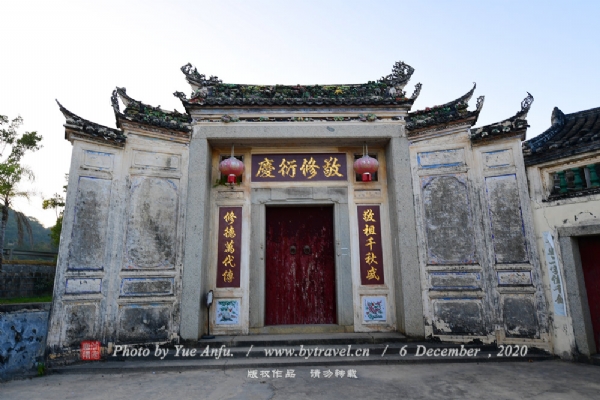
Meizhou Dabu Zhaoqingtang.
Scenic Surroundings
Set against a backdrop of lush hills and tea plantations, the natural beauty surrounding Zhaoqingtang is breathtaking. Take a leisurely stroll through the nearby tea fields at Yannanfei, where you can experience tea picking and enjoy a cup of freshly brewed Hakka tea. The picturesque landscape provides excellent opportunities for photography, especially during sunrise and sunset when the scenery transforms into a painterly vista.
Historical Insights
The area is steeped in history, with ancient structures and museums that offer insights into the life and times of the Hakka people. The Dabu area is home to several historical sites, including ancient ancestral halls and temples, each telling its own story of resilience and cultural pride. Visiting these sites allows travelers to appreciate the depth of Hakka history and its influence on contemporary society.
Unique Shopping Experiences
As you explore the village, take the time to browse local shops that offer handmade crafts and Hakka specialties. From traditional pottery to woven goods, these items make for perfect souvenirs that carry the essence of Meizhou’s rich cultural landscape.
Accessibility and Local Hospitality
Meizhou Dabu Zhaoqingtang is easily accessible by public transport and offers a variety of accommodation options, from charming guesthouses to modern hotels. The warm hospitality of the locals ensures that visitors feel welcomed and valued, enriching the overall travel experience.
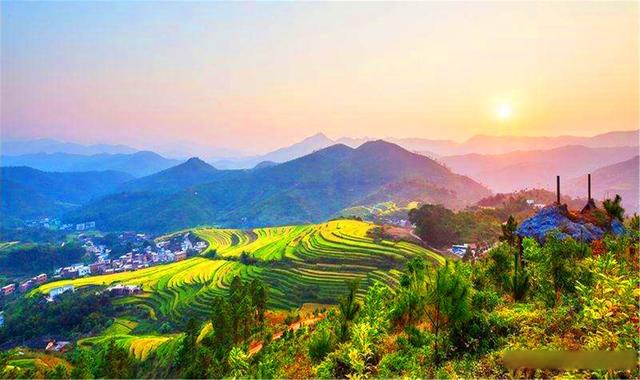
Meizhou Dabu Zhaoqingtang.
In summary, a visit to Meizhou Dabu Zhaoqingtang promises a perfect blend of cultural exploration, historical discovery, and natural beauty, making it an unforgettable journey into the heart of Hakka heritage.
Planning Your Visit: A Practical Guide
Practical Guide to Visiting Meizhou Dabu Zhaoqingtang (大埔肇庆堂)
Getting There
Meizhou, located in the northeastern part of Guangdong Province, is well-connected via various transportation options. The nearest major transportation hubs are:
- By Train: High-speed trains from major cities like Guangzhou and Shenzhen arrive at Meizhou West Station. From the station, you can take a taxi or local bus to reach Dabu Zhaoqingtang.
- By Air: The closest airport is Meixian Airport, which offers domestic flights from several major cities. Taxis and shuttle buses can take you to Dabu once you arrive.
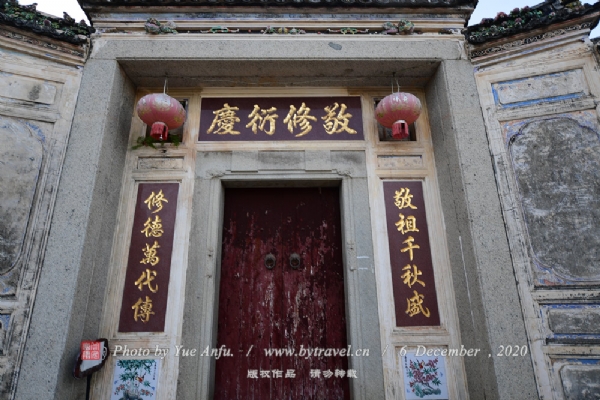
Meizhou Dabu Zhaoqingtang.
Best Time to Visit
The ideal seasons to visit Meizhou are spring (March to May) and autumn (September to November) when the weather is mild and pleasant. During these months, you can enjoy the natural beauty and partake in local festivals, enhancing your cultural experience.
Local Accommodations
For a comfortable stay, consider the following options:
- Luxury Hotels: Hotels like the Jianguo Hotel or the Huaqiao International Hotel provide excellent services and amenities.
- Boutique Guesthouses: Experience traditional Hakka culture by staying in guesthouses within ancient Hakka buildings, offering a unique glimpse into local life.
- Budget Options: Affordable hotels and hostels are available in the city center, making it easy to access Dabu Zhaoqingtang and other attractions.
Exploring Dabu Zhaoqingtang
Dabu Zhaoqingtang is nestled in the historic Baijiao Ancient Town, known for its preserved Ming and Qing architecture. Here’s how to make the most of your visit:
- Tickets: Entry to Dabu Zhaoqingtang typically requires a ticket. It is advisable to check online for current prices and any potential discounts for groups or students.
- Guided Tours: To fully appreciate the historical significance and architectural beauty, consider hiring a local guide. They can provide insights into the stories behind the buildings and the Hakka culture.
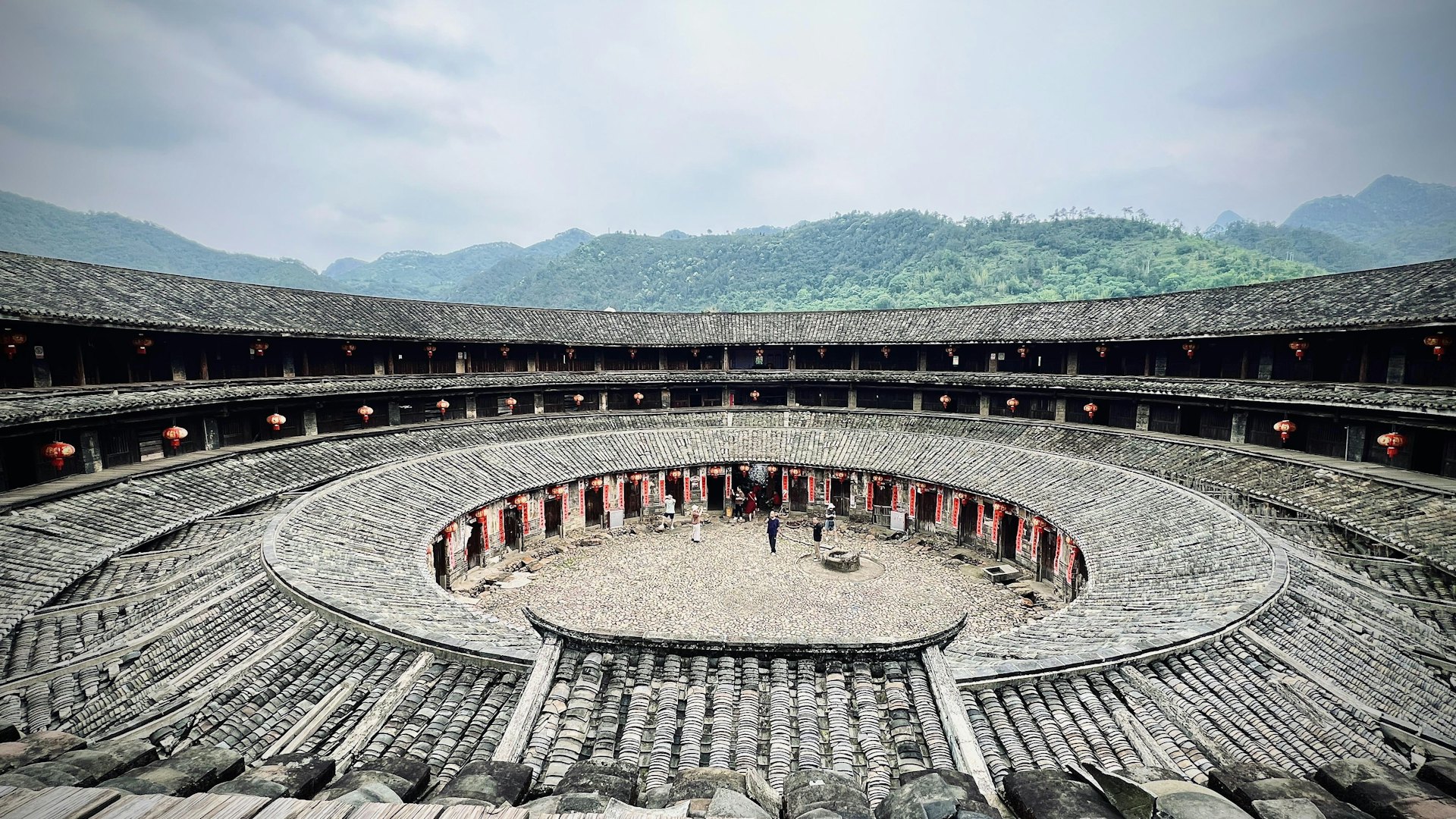
Meizhou Dabu Zhaoqingtang.
Nearby Attractions
While visiting Dabu Zhaoqingtang, don’t miss these nearby attractions:
- Baijiao Ancient Town: Stroll through the narrow alleys and admire the traditional architecture and local craftsmanship.
- Pine Hill: A nearby scenic area, perfect for hiking and enjoying panoramic views of the surrounding countryside.
- Chinese Hakka Museum: Gain a deeper understanding of Hakka culture and history through various exhibitions and artifacts.
Culinary Delights
No visit to Meizhou is complete without indulging in local cuisine. Here are some must-try dishes:
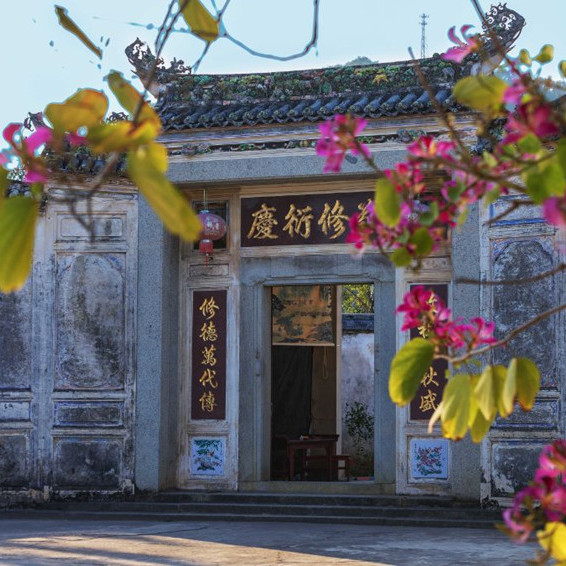
Meizhou Dabu Zhaoqingtang.
- Hakka Salt-Baked Chicken: A signature dish known for its tender meat and crispy skin, seasoned with a mix of spices.
- Yam Rice Noodles: A local specialty that pairs well with various sauces and toppings.
- Three-Section Soup (三及第汤): A nourishing soup made with seasonal vegetables and meats, favored by locals.
Transportation Within Meizhou
- Public Transport: Buses and taxis are readily available. Local buses cover major routes, but taxis are more convenient for reaching specific attractions.
- Biking: Some areas in Meizhou are bike-friendly. Renting a bicycle can be a fun way to explore the town at your own pace.
Tips for Travelers
- Language: While Mandarin is widely spoken, learning a few basic phrases in Hakka can enhance your interactions with locals.
- Cash: Although digital payments are common, it’s advisable to carry some cash for smaller vendors and street food.
- Cultural Respect: When visiting temples or traditional sites, dress modestly and be respectful of local customs and traditions.
Visiting Dabu Zhaoqingtang offers a unique opportunity to immerse yourself in Hakka culture and history. With this guide, you’re set to explore this charming destination with ease and enjoyment!
Tickets, Hours, and Booking
When planning your visit to Meizhou Dabu Zhaoqingtang (大埔肇庆堂), it’s essential to know the ticketing details to ensure a smooth experience. The entrance to the Dabu Zhaoqingtang is generally included as part of a broader ticket for the nearby Baijia Ancient Town (百侯名镇), a cultural and historical site that showcases the rich Hakka heritage.
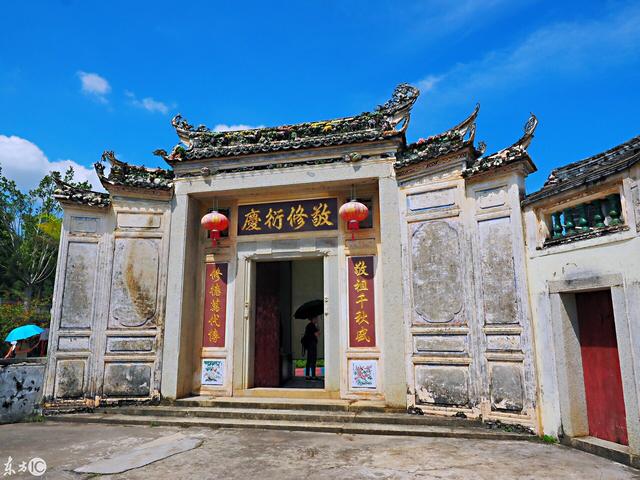
Meizhou Dabu Zhaoqingtang.
Ticket Information
- General Admission Price: Approximately ¥50 (Chinese Yuan) per person. This ticket grants you access to the Dabu Zhaoqingtang and additional attractions within Baijia Ancient Town.
- Opening Hours: The site is typically open from 8:30 AM to 5:30 PM, with last entry at 5:00 PM. It’s advisable to arrive earlier to fully explore the area and avoid the crowds.
- Discounts: There may be concessions available for students, seniors, and children. It’s best to check at the ticket counter for specific pricing.
- Group Tickets: For larger groups, there might be options for bundled tickets or discounts, which can be arranged in advance.
- Payment Methods: Tickets can usually be purchased on-site, but it’s becoming increasingly common to buy them online through various travel apps. Ensure to check if online booking offers any discounts or convenience.
Additional Tips
- Guided Tours: Consider joining a guided tour if you want a deeper understanding of the historical significance of the architecture and cultural elements within the site.
- Cultural Programs: Keep an eye out for any special events or performances that may occur during your visit, as these can enhance your experience significantly.
By planning ahead and securing your tickets, you can fully immerse yourself in the captivating history and culture that Meizhou Dabu Zhaoqingtang has to offer. Enjoy your visit!
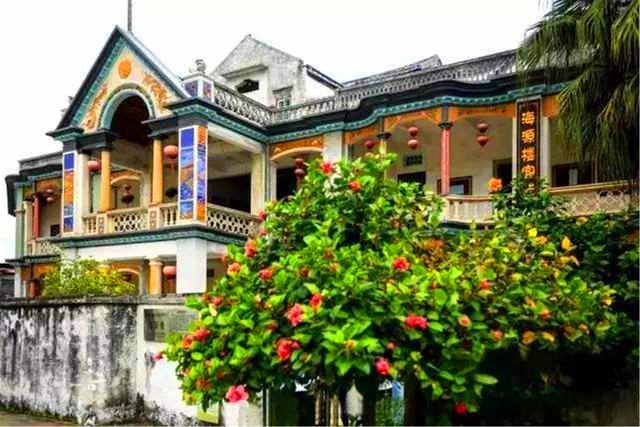
Meizhou Dabu Zhaoqingtang.
How to Get There
Getting to and Around Meizhou Dabu Zhaoqingtang
Meizhou, a captivating city in Guangdong province renowned for its rich Hakka culture, offers a variety of transportation options that make exploring the area both convenient and enjoyable. Whether you’re arriving by air, train, or road, here’s what you need to know to navigate your way to Dabu Zhaoqingtang and its surroundings.
Arriving in Meizhou
By Air:
Meizhou is served by Meixian Airport (MXZ), which is about 30 kilometers from the city center. The airport has regular flights connecting to major cities like Guangzhou, Shenzhen, and Beijing. Once you arrive, you can take a taxi or a shuttle bus to reach your destination in the city.
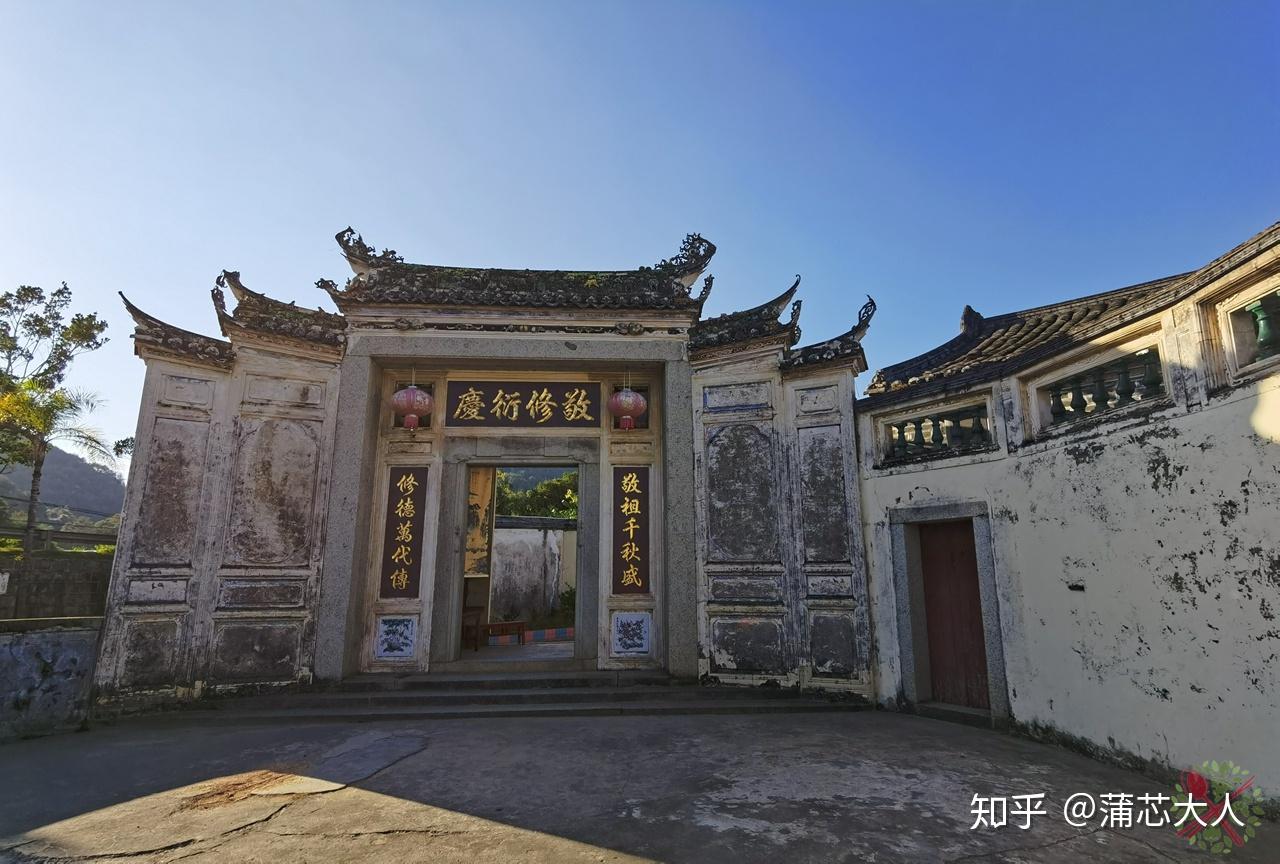
Meizhou Dabu Zhaoqingtang.
By Train:
For those traveling from nearby cities, high-speed trains are a popular option. Meizhou has two main train stations: Meizhou Railway Station and Meizhou West Railway Station. High-speed trains connect Meizhou to Guangzhou, Shenzhen, and other cities in Guangdong. Upon arrival, local taxis and buses are readily available to take you to Dabu Zhaoqingtang.
By Bus:
Long-distance buses are another option for reaching Meizhou. The city has several bus terminals with routes connecting to various provinces and cities. Buses from Guangzhou and Shenzhen are frequent and are an economical way to travel.
Getting Around Meizhou
Once in Meizhou, there are several transportation options to explore the area:
Public Transportation:
Meizhou has a network of public buses that cover most of the city and its attractions. Buses are affordable, with fares typically ranging from 1 to 3 RMB. However, they may not be the most convenient option for non-Chinese speakers due to limited English signage.
Taxis and Ride-Sharing:
Taxis are widely available and can be flagged down on the street or booked through various apps. A ride from the city center to Dabu Zhaoqingtang typically costs around 30-50 RMB. Ride-sharing services like Didi are also operational, providing a convenient alternative for getting around.
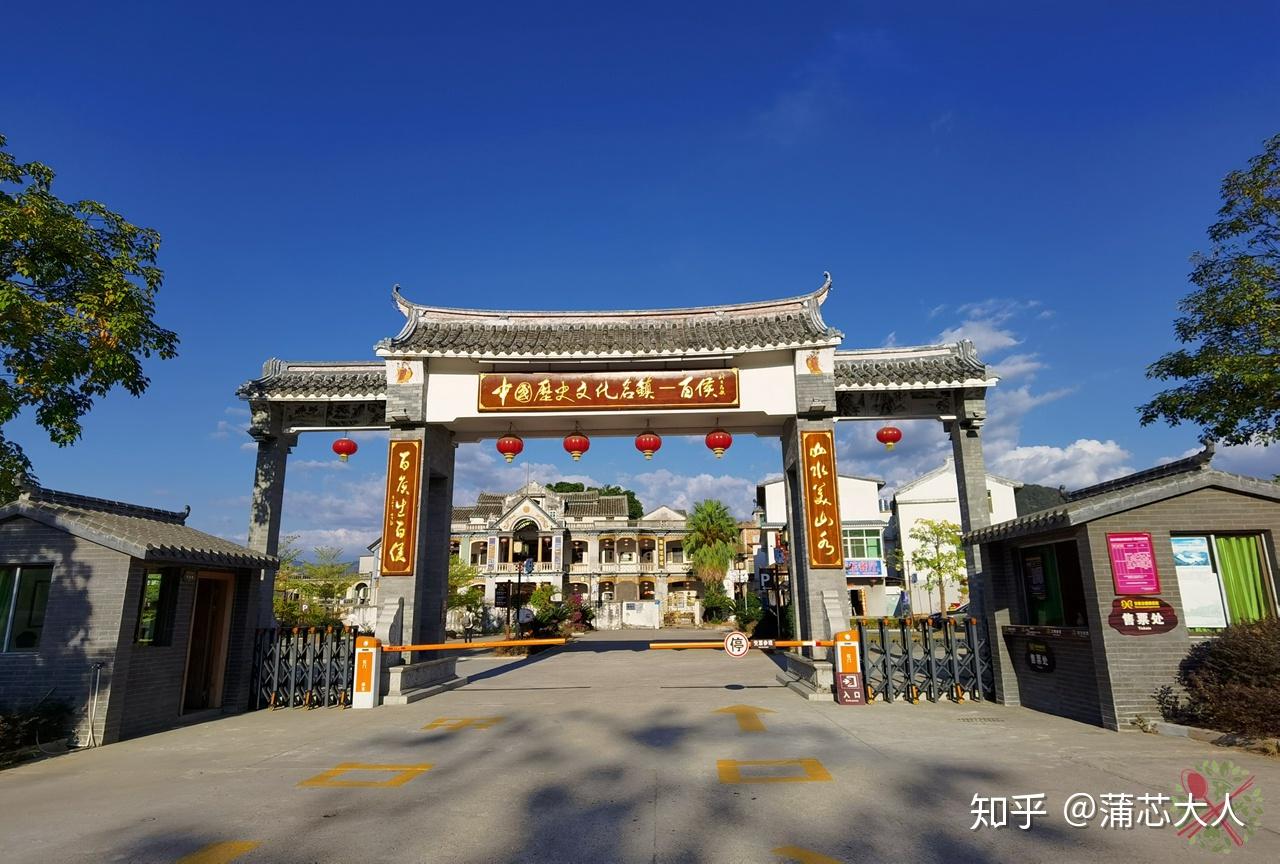
Meizhou Dabu Zhaoqingtang.
Car Rentals:
For those who prefer more flexibility, renting a car is a viable option. Several car rental agencies operate in Meizhou, and having a vehicle allows you to explore the surrounding countryside at your own pace. Be sure to have a valid driver’s license and familiarize yourself with local driving regulations.
Bicycles and Electric Scooters:
In some areas, bicycles and electric scooters are available for rent. This is a great way to explore Meizhou’s scenic spots, especially if you’re heading to attractions like Dabu Zhaoqingtang, where the surrounding landscape is beautiful and worth a leisurely ride.
Navigating to Dabu Zhaoqingtang
Dabu Zhaoqingtang is located in the Dabu County area, which is about a 30-minute drive from downtown Meizhou. Whether you opt for a taxi, a rented vehicle, or public buses, the journey to this historic site offers a glimpse into the picturesque countryside.
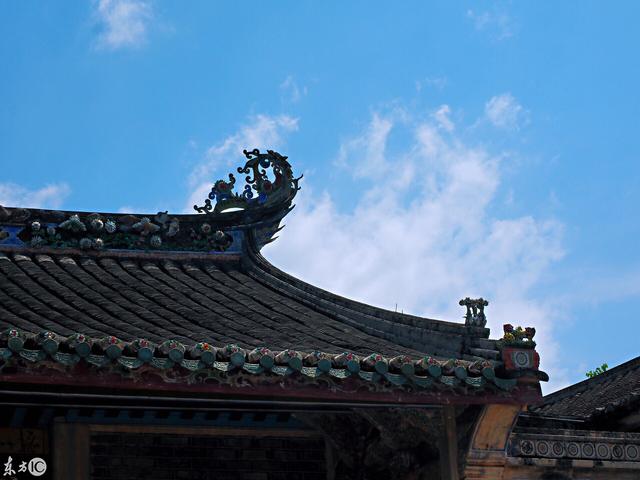
Meizhou Dabu Zhaoqingtang.
- By Taxi: Simply inform the driver of your destination—most drivers are familiar with Dabu Zhaoqingtang.
- By Car: Use a navigation app to guide you through the scenic routes leading to the site, which is popular for its blend of history and natural beauty.
Tips for Travelers
- Language: While many taxi drivers understand basic English, it may be helpful to have your destination written in Chinese to show them.
- Payment: Cash is widely accepted, but digital payment methods like WeChat Pay and Alipay are increasingly popular, especially among younger locals.
- Timing: Plan your transportation according to the time of day, as traffic can vary. Early mornings and late afternoons may see heavier congestion.
With these transportation options and tips in mind, you’ll find it easy to navigate Meizhou and enjoy the rich cultural experiences that await you at Dabu Zhaoqingtang and beyond.
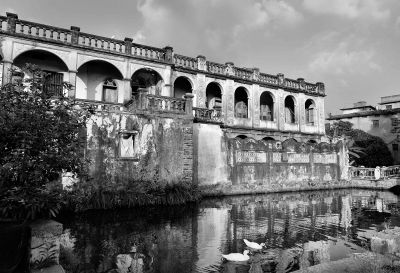
Meizhou Dabu Zhaoqingtang.
Local Cuisine and Accommodation
When visiting Meizhou’s Dabu Zhaoqingtang, you’ll find a delightful blend of authentic cuisine and comfortable accommodations that truly reflect the local culture.
Culinary Delights
Meizhou is a treasure trove of Hakka cuisine, and Dabu is no exception. Here are some must-try dishes and dining spots:
-
Salt-Baked Chicken (盐焗鸡): This dish epitomizes Hakka cooking, featuring tender chicken enveloped in a crispy, aromatic salt crust. The best places to sample this are local eateries like Zhen Cheng Salt-Baked Chicken, renowned for its juicy flavor.
-
Hakka Stuffed Tofu (客家釀豆腐): Experience this comforting dish where silky tofu is filled with seasoned minced meat and then pan-fried to golden perfection. You can find it in many local restaurants, but Wei Long Restaurant is particularly recommended for its authentic preparation.
-
Pickled Noodles with Three-Ingredient Soup (醃面+三及第汤): A breakfast staple among locals, this dish features noodles tossed with a savory sauce and accompanied by a delicate soup made with goji berries. Stop by Dabu Snack Culture City for an authentic taste.
-
Hakka Yam Cake (算盤子): This unique snack, made from yam flour, symbolizes reunion and togetherness. Look for it at street vendors around the old town or in bustling markets.
-
Hot Pot Dishes: For a social dining experience, try one of the many hot pot restaurants offering local ingredients and dipping sauces. Tao Tao Dining House is a great choice for a casual meal with friends or family.
Comfortable Stays
After a day of exploring the vibrant culture and delicious food of Dabu, unwind in one of the local accommodations that blend comfort with tradition:
-
Keda International Hotel (客天下国际大酒店): This modern hotel offers spacious rooms and excellent amenities, making it a perfect base for your adventures. Its proximity to major attractions ensures you won’t miss out on the local sights.
-
Yannanfei Tea Resort (雁南飞围龙大酒店): Nestled amidst lush tea fields, this tranquil resort allows you to enjoy breathtaking views right from your window. It’s an ideal spot for tea lovers and those looking to experience the serenity of nature.
-
Dabu Ancient Town Guesthouse (大埔古镇客栈): For a more intimate experience, consider staying in a guesthouse that showcases traditional Hakka architecture. This option provides a glimpse into local life and often includes home-cooked meals.
-
Yueyun Homestay (阅云美宿): Located near the scenic Yannanfei Tea Fields, this homestay combines comfort with local charm. Enjoy personalized hospitality, and don’t miss the opportunity to partake in tea-picking activities during your stay.
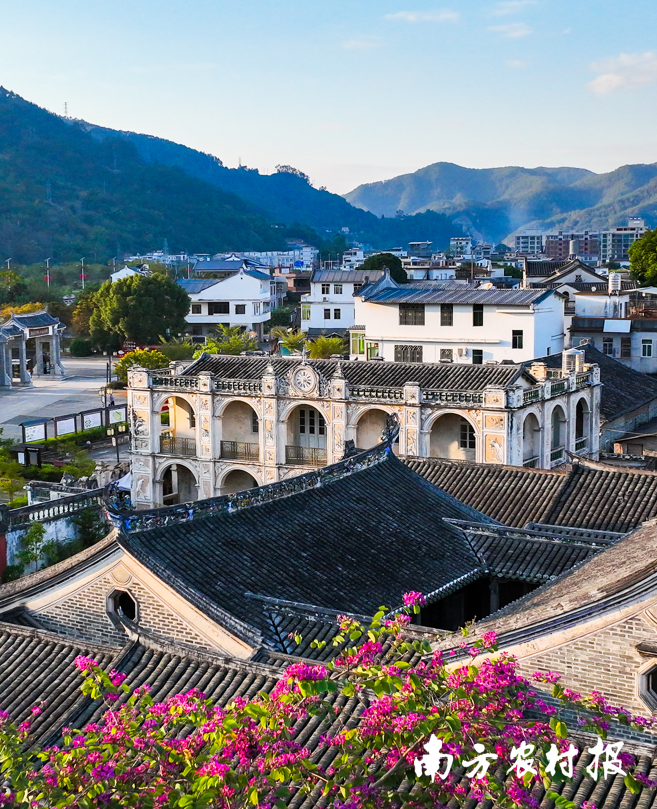
Meizhou Dabu Zhaoqingtang.
Conclusion
Whether you’re indulging in Hakka delicacies or resting in a cozy homestay, Dabu Zhaoqingtang offers a unique blend of experiences that captures the essence of Hakka culture. Make sure to savor every moment of your visit!
Frequently Asked Questions
-
What are the opening hours for Meizhou Dabu Zhaoqingtang?
Meizhou Dabu Zhaoqingtang typically opens from 8:30 AM to 5:30 PM, with the last entry allowed at 5:00 PM. It’s advisable to check for any seasonal changes in hours before your visit. -
How much does it cost to enter Meizhou Dabu Zhaoqingtang?
Entrance fees vary, but generally, tickets are priced around 50 RMB. It’s recommended to check local listings or official websites for current pricing and any available discounts. -
Is Meizhou Dabu Zhaoqingtang suitable for families with children?
Yes, the site is family-friendly and offers educational experiences about Hakka culture, making it a great destination for children to learn while having fun. There are also interactive activities available. -
What are the must-see attractions within the Meizhou Dabu Zhaoqingtang area?
Key attractions include the beautifully preserved traditional Hakka architecture, the various cultural exhibitions, and guided tours that provide insights into the history of the Hakka people. -
Are there dining options available near Meizhou Dabu Zhaoqingtang?
Yes, several local eateries offer authentic Hakka cuisine near the site. Popular dishes include salted chicken and stuffed tofu, ensuring a delicious dining experience after your visit. -
What is the best time of year to visit Meizhou Dabu Zhaoqingtang?
Spring (March to May) and autumn (September to November) are ideal times to visit due to pleasant weather conditions. These seasons also feature beautiful scenery, making your visit more enjoyable. -
How can I get to Meizhou Dabu Zhaoqingtang from downtown Meizhou?
Accessing Meizhou Dabu Zhaoqingtang from the city center is convenient. You can take a taxi or use local public transport options like buses, which are frequent and affordable. -
Are there any special events or festivals held at Meizhou Dabu Zhaoqingtang?
Yes, Meizhou Dabu Zhaoqingtang hosts various cultural events and festivals throughout the year, celebrating Hakka traditions. Check the local event calendar for specific dates and details during your visit.
Final Thoughts on Your Trip
In the heart of Meizhou, Dabu Zhaoqingtang stands as a testament to the rich tapestry of Hakka culture, inviting travelers to explore its storied past and vibrant present. The intricate architecture and lush surroundings offer not just a visual feast, but also a profound connection to the traditions and lifestyles of the Hakka people. Each visit is not merely a tour but an immersion into a world where history whispers through ancient walls, and local flavors awaken the senses.
As you plan your journey, remember that the experience extends beyond the walls of Zhaoqingtang. Venture into the surrounding attractions, savor the unique Hakka cuisine, and engage with the warm-hearted locals who are eager to share their stories. Whether you seek adventure, relaxation, or cultural enlightenment, Dabu Zhaoqingtang and its enchanting surroundings promise a memorable escape from the ordinary. Embrace the opportunity to create lasting memories in this hidden gem of Guangdong, where every corner has a story waiting to be told.
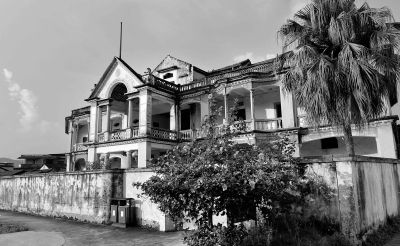
Meizhou Dabu Zhaoqingtang.
